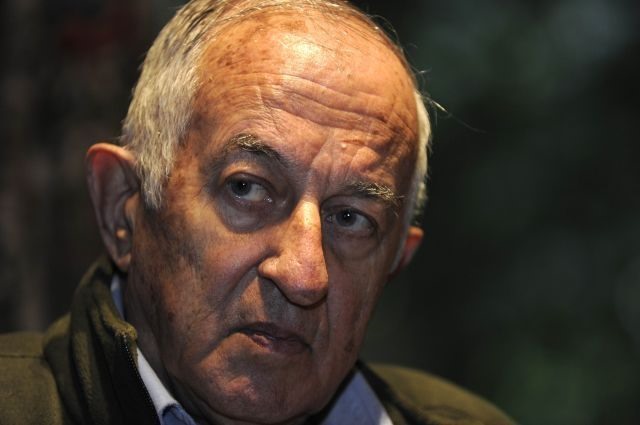 Life & Style
Life & Style

Veteran Spanish anti-Franco writer Juan Goytisolo, one of Spain's most celebrated writers of the postwar period, died Sunday aged 86, his agent said.
 |
| Veteran Spanish anti-Franco writer Juan Goytisolo, one of Spain’s most celebrated writers of the postwar period, died Sunday aged 86. — AFP Photo |
ISTANBUL — Veteran Spanish anti-Franco writer Juan Goytisolo, one of Spain’s most celebrated writers of the postwar period, died Sunday aged 86, his agent said.
The novelist and essayist, who won the Cervantes Prize — Spain’s version of the Nobel — in 2014, died in Marrakesh, Morocco, "surrounded by his loved ones," said the Carmen Balcells agency in a statement.
A member of Spain’s Royal Academy, he had suffered from health problems for some months, including a fractured hip which had forced him to use a wheelchair
He was born in 1931 in Barcelona to a bourgeois family. His mother was killed when he was seven, in an air raid by the forces of right-wing General Francisco Franco during the civil war.
He went into exile in France due to his "total disagreement" with the Franco regime and the censorship it imposed.
He flirted with the communist party during the late 1950s, which brought him a four-month jail term, but he was inspired more by his opposition to the Franco dictatorship than by proletarian conviction.
He began writing at the age of 11, encouraged by his uncle Luis, and his first novels were published after attending law school.
In Las Afueras (1958) and Las Mismas Palabras (1962) he displayed literary traits that would appear in later works: the importance of dialogue, the absence of a main character, multiple points of view.
This complexity was again in evidence in his tetralogy Antigonia, his most celebrated work. Set in the youth culture of Barcelona in the 1950s and 1960s, it is made up of Recuento (1973), Los Verdes de Mayo Hasta el Mar (1976), La Colera de Aquiles (1979) et Teoria del Conocimiento (1981).
Goytisolo explores life in all its facets, from childhood to death, in a complex mixture of memories, introspection and reflections on the work of a writer. — AFP




